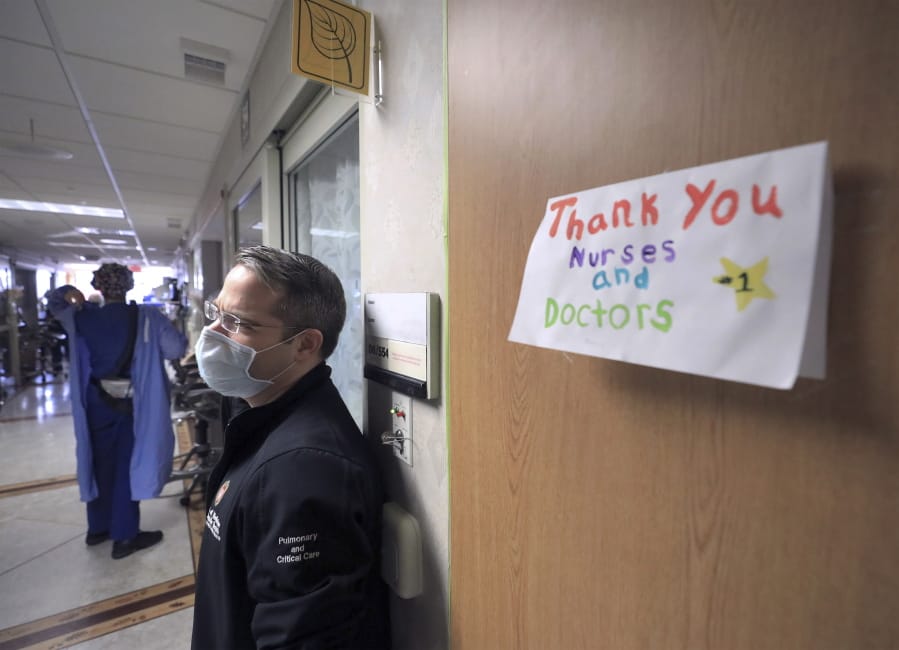Overwhelmed hospitals are converting chapels, cafeterias, waiting rooms, hallways, even a parking garage into patient treatment areas. Staff members are desperately calling around to other medical centers in search of open beds. Fatigue and frustration are setting in among front-line workers.
Conditions inside the nation’s hospitals are deteriorating by the day as the coronavirus rages across the U.S. at an unrelenting pace and the death toll surpasses 250,000.
“We are depressed, disheartened and tired to the bone,” said Alison Johnson, director of critical care at Johnson City Medical Center in Tennessee, adding that she drives to and from work some days in tears.
The number of people in the hospital with COVID-19 in the U.S. has doubled in the past month and set new records every day this week. As of Tuesday, nearly 77,000 were hospitalized with the virus.
Newly confirmed infections per day in the U.S. have exploded more than 80 percent over the past two weeks to the highest levels on record, with the daily count running at close to 160,000 on average. Cases are on the rise in all 50 states. Deaths are averaging more than 1,155 per day, the highest in months.
The out-of-control surge is leading governors and mayors across the U.S. to grudgingly issue mask mandates, limit the size of private and public gatherings ahead of Thanksgiving, ban indoor restaurant dining, close gyms or restrict the hours and capacity of bars, stores and other businesses.
New York City’s school system — the nation’s largest, with more than 1 million students — suspended in-person classes Wednesday amid a mounting infection rate, a setback in a corner of the country that suffered mightily in the spring but had seemingly beaten back the virus months ago.
Texas is rushing thousands of additional medical staff to overworked hospitals as the number of hospitalized COVID-19 patients statewide accelerates toward 8,000 for the first time since a deadly summer outbreak.
In the worsening rural Panhandle, roughly half of the admitted patients in Lubbock’s two main hospitals had COVID-19, and a dozen people with the virus were waiting in the emergency room for beds to open up Tuesday night, said Dr. Ron Cook, the Lubbock County health authority.
“We’re in trouble,” Cook said.
In the Texas border city of El Paso, overwhelmed morgues have begun paying jail inmates $2 an hour to help transport the bodies of virus victims. The crush of patients is forcing the city to send its non-COVID-19 cases to hospitals elsewhere.
More than 5,400 extra medical personnel have been deployed around Texas by the state alone, said Lara Anton, a spokeswoman for the Texas Department of State Health Services. And that doesn’t include the help surging into Texas from the military and volunteer organizations.
“There are only so many medical personnel to go around. And I think what we’re seeing in places like El Paso is not sustainable in all or a large part of the state,” said Dr. Mark McClellan, a former head of the Food and Drug Administration.
The only health care system in the Appalachian mountains of Tennessee and Virginia is warning that it and its workers are stretched so thin that it is only a matter of time before its hospitals will have to turn patients away.
The health system reported having just 16 available ICU beds and about 250 team members in isolation or quarantine. It is trying to recruit hundreds more nurses.



